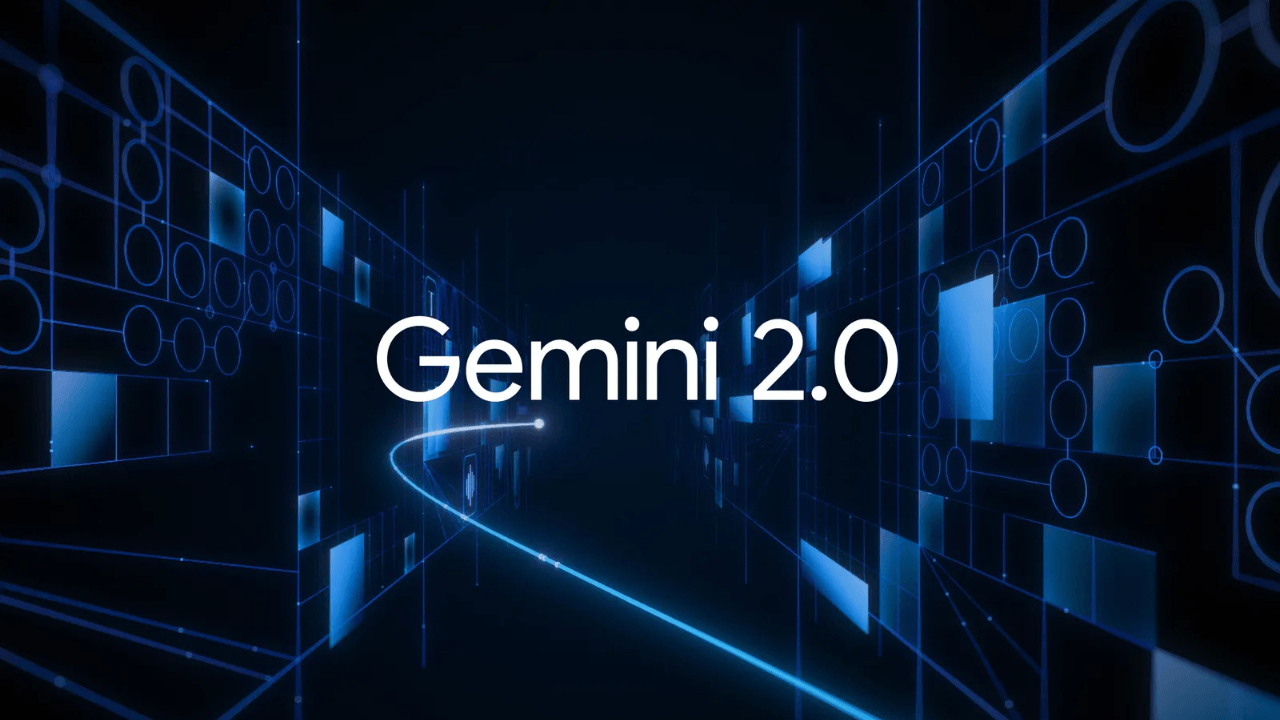While artificial intelligence giants such as Anthropic and OpenAI stand out with the new artificial intelligence models they have recently released, Google has also started to present the preview of the new generation Gemini 2.0 model. In addition to introducing this model, the company came up with new tools such as the Gemini 2.0 Flash model, Project Mariner, Jules and Deep Research. Let’s take a look at Google’s innovations focused on artificial intelligence.
Gemini 2.0
Google CEO’su Sundar Pichai’nin According to what they conveyed; Gemini 2.0 is the company’s most capable model yet. Gemini 2.0 offers multimodal output with local rendering and audio output. Additionally, the model has new capabilities such as local use of tools such as Google Search and Maps. Gemini 2.0 is expected to enable Google to create new AI agents that bring it closer to its vision of a universal assistant.
Gemini users can access the chat-optimized version of 2.0 Experimental from anywhere in the world by selecting from the model drop-down list on desktop or mobile web. You will soon be able to find this version on the Gemini mobile app. In this new model, users will see that the Gemini assistant helps them more.
Gemini 2.0 Flash
In this context, the more efficient and affordable Gemini 2.0 Flash model can be used by all Gemini users. If you want to try the model, you can enable Gemini 2.0 from the drop-down menu in the Gemini web client. The model is expected to be available on the mobile application soon.
2.0 Flash, supporting multi-mode inputs such as visual, video and audio It can natively call tools like Google Search, code execution, and third-party user-defined functions.
Developers will be able to use this model in the Gemini API via Google AI Studio and Vertex AI. Gemini and Gemini Advanced users around the world can try a chat-optimized version by selecting Gemini 2.0 from the model drop-down menu on desktop.
Gemini 2.0 features in search
In the future, Google plans to add Gemini 2.0’s smart features to its main focus on Search. The company will even start this with AI Overviews. According to the information shared by the company, the new model will allow the search feature to handle more complex and relevant questions. This includes questions that involve multi-step math and coding problems.
However, Google plans to make AI Overviews available in more languages and countries. If you remember, the company last made a comprehensive expansion in October. According to the information shared by Google; Thanks to the new model, the latest version of Astra can speak multiple languages. In fact, Astra can instantly switch between languages. It can also access tools like Google Lens and Maps while offering lower latency as well as being able to remember for longer periods of time.
It should be noted that Gemini 2.0 Flash offers significantly better performance compared to the previous model. According to the information shared; It scored 63 percent on HiddenMath. In comparison, Gemini 1.5 Flash achieved a score of 47.2 percent in the same test. The HiddenMath benchmark tests the ability of AI models to complete competition-level math problems. It is also noteworthy that the experimental version of Gemini 2.0 surpasses Gemini 1.5 Pro in many areas.
According to the data shared by Google, the only areas where Gemini 2.0 lags behind are long text understanding and automatic speech translation. Therefore, it is worth noting that Google will continue to use the old model for a while.
Sundar Pichai explained that this new version is built on Trillium, the company’s sixth-generation TPUs:
Our progress on version 2.0 is thanks to a decade of investments in a full-scale approach to innovation in artificial intelligence. This version is built on custom hardware like Trillium, our sixth generation TPUs. All of the power for training and semantics of Gemini 2.0 is powered by TPUs. Today, our customers can generally use Trillium in their development work.
Google’s artificial intelligence agent step: Project Mariner
Project Mariner is an early version of the research prototype created with Gemini 2.0. It aims to shape the future of human-agent interaction that users initiate from the browser. Project Mariner, a research prototype, can understand and reason about a variety of information, including pixels on your browser screen as well as web elements such as text, code, images, and forms. It is stated that the product can complete tasks for you using this information through an experimental Chrome extension.
Coding representative: Jules
Google also states that in the coming period, it will begin to explore how artificial intelligence representatives can help developers with Jules. Jules, an experimental AI-powered coding agent, integrates directly with the GitHub workflow. Jules can develop and implement a plan as well as solve a problem. Doing all this under the instructions and supervision of the developer, Jules is part of the long-term goal of developing useful AI representatives in all areas, including coding.
Deep Research
Gemini Advanced’s new feature, Deep Research, investigates complex issues on your behalf with the support of artificial intelligence. Presenting its findings in a comprehensive and easy-to-read report, this new feature creates a multi-step research plan after you enter your question. You can change or confirm this plan. Once you approve, it begins searching for relevant information on your behalf, in a very comprehensive manner across the entire web.
If you wish, you can export the report prepared by Deep Research as a Google document. The report is presented to users with links to original sources. Just mention this to Gemini to make the report even more detailed.
Deep Research is available globally on Gemini Advanced, initially in English. To access this feature, you can select “With Gemini 1.5 Pro Deep Research” in the model drop-down menu and then enter your research question.
Source link: https://webrazzi.com/2024/12/12/google-in-yapay-zeka-odagindaki-yenilikleri-gemini-2-0-gemini-2-0-flash-deep-research/


